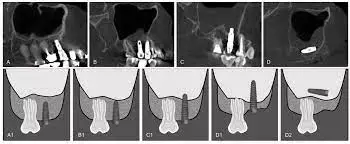- Home
- Medical news & Guidelines
- Anesthesiology
- Cardiology and CTVS
- Critical Care
- Dentistry
- Dermatology
- Diabetes and Endocrinology
- ENT
- Gastroenterology
- Medicine
- Nephrology
- Neurology
- Obstretics-Gynaecology
- Oncology
- Ophthalmology
- Orthopaedics
- Pediatrics-Neonatology
- Psychiatry
- Pulmonology
- Radiology
- Surgery
- Urology
- Laboratory Medicine
- Diet
- Nursing
- Paramedical
- Physiotherapy
- Health news
- Fact Check
- Bone Health Fact Check
- Brain Health Fact Check
- Cancer Related Fact Check
- Child Care Fact Check
- Dental and oral health fact check
- Diabetes and metabolic health fact check
- Diet and Nutrition Fact Check
- Eye and ENT Care Fact Check
- Fitness fact check
- Gut health fact check
- Heart health fact check
- Kidney health fact check
- Medical education fact check
- Men's health fact check
- Respiratory fact check
- Skin and hair care fact check
- Vaccine and Immunization fact check
- Women's health fact check
- AYUSH
- State News
- Andaman and Nicobar Islands
- Andhra Pradesh
- Arunachal Pradesh
- Assam
- Bihar
- Chandigarh
- Chattisgarh
- Dadra and Nagar Haveli
- Daman and Diu
- Delhi
- Goa
- Gujarat
- Haryana
- Himachal Pradesh
- Jammu & Kashmir
- Jharkhand
- Karnataka
- Kerala
- Ladakh
- Lakshadweep
- Madhya Pradesh
- Maharashtra
- Manipur
- Meghalaya
- Mizoram
- Nagaland
- Odisha
- Puducherry
- Punjab
- Rajasthan
- Sikkim
- Tamil Nadu
- Telangana
- Tripura
- Uttar Pradesh
- Uttrakhand
- West Bengal
- Medical Education
- Industry
Implant failure rate and risk of sinusitis low for implants penetrating floor of maxillary sinus, reveals study

Implant failure rate and risk of sinusitis low for implants penetrating in the floor of the maxillary sinus reveals a study published in the Journal of Clinical Medicine.
The aim of the present systematic review was to investigate the clinical outcomes after the perforation of the maxillary sinus by dental implants, or after maxillary sinus membrane perforation during sinus lift procedure. Twenty-nine publications were included. Failure rates of implants in cases where perforation of sinus floor had happened (11 studies) was generally low, and only one case of transient sinusitis was reported. The estimated failure rate of these implants was 2.1% (SE 1.0%, p = 0.035). There were 1817 implants (73 failures) placed in augmented sinuses in which the sinus membrane was perforated and 5043 implants (274 failures) placed in sinuses with no perforated membrane, from 18 studies.
The odds of implant failure difference between the groups were not significant (OR 1.347, p = 0.197). log OR of implant failure between perforated and non-perforated membrane groups did not significantly change with the follow-up time (−0.004/month; p = 0.500). In conclusion, implant failure rate is generally low either for implants penetrating in the floor of the maxillary sinus or implants placed in augmented sinuses in which the sinus membrane was perforated. The prevalence of postoperative infection/sinusitis is low, and it may depend either on the dimensions of the perforation or on the anatomical predisposition.
Reference:
Sala YM, Lu H, Chrcanovic BR. Clinical Outcomes of Maxillary Sinus Floor Perforation by Dental Implants and Sinus Membrane Perforation during Sinus Augmentation: A Systematic Review and Meta-Analysis. Journal of Clinical Medicine. 2024; 13(5):1253. https://doi.org/10.3390/jcm13051253
Dr. Shravani Dali has completed her BDS from Pravara institute of medical sciences, loni. Following which she extensively worked in the healthcare sector for 2+ years. She has been actively involved in writing blogs in field of health and wellness. Currently she is pursuing her Masters of public health-health administration from Tata institute of social sciences. She can be contacted at editorial@medicaldialogues.in.
Dr Kamal Kant Kohli-MBBS, DTCD- a chest specialist with more than 30 years of practice and a flair for writing clinical articles, Dr Kamal Kant Kohli joined Medical Dialogues as a Chief Editor of Medical News. Besides writing articles, as an editor, he proofreads and verifies all the medical content published on Medical Dialogues including those coming from journals, studies,medical conferences,guidelines etc. Email: drkohli@medicaldialogues.in. Contact no. 011-43720751


